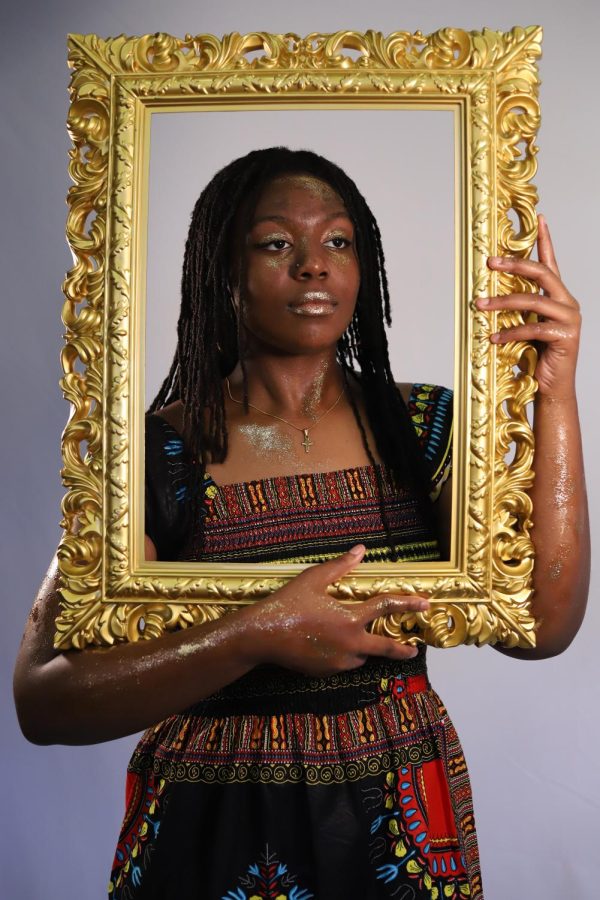LOCked Up
Social Media: Editing Faces and Culture
February 1, 2022
Tight braids swirl around the women’s heads making beautiful shapes and displaying intricate patterns. Rows of hair trace their scalps. These dark and interlaced hairs have been styled with purpose for thousands of years. Their origin comes from African culture and they’ve been spread across the world throughout the centuries.
When most Americans now see women with cornrows – a style of braids – in their hair, they may think of Kim Kardashian and the hottest new fashion trends.
But, according to a Washington Post article, what some see as a trend has a much deeper meaning. The braids used to represent the roads slaves in the Americas would take to escape their masters’ homes. Former slaves would even weave rice and seeds into the braids as a means of survival after their escape. It is with this deeper meaning that senior Mitchen Hallie feels frustration bubbling when she sees a non-Black celebrity treat the hairstyle as a novelty.
“It makes me itch anytime I see my culture being appropriated,” Hallie said. “We would braid hair to put, I believe, seeds and rice in it, and just to see people use those braids for a cool little trend just makes me angry.”
The encounters Hallie has experienced in-person, online and through social media painted the picture of what it’s like to explore the web as a young Black girl. Experiences that included people promoting a false identity of her African homeland online and a traumatic middle school birthday party where the birthday girl “became” Black as her present.
“I think when it really hit me [was] when this guy I liked didn’t like me because I was Black. And that was something that opened my eyes,” Hallie said. “I [told myself], ‘There’s nothing I can do to change that at all,’ and I hated myself for so long. It took so long to build myself up and tell myself it’s okay.”
As she grew up, Hallie realized that not only were these microaggressions and appropriation rampant in her small circle but they continued to show up while Hallie navigated dating and relationships.
“There’ll be [non-Black men] with a Black woman who will be like, ‘Oh, my chocolate Ebony, goodness goddess,’” Hallie said. “I’ve been called Ebony before…and it was the first thing that was said, not even hi or hello.”
This sexualization of her race is not the only hurtful thing that Hallie finds online and in life. She’s seen harmful words like the N-word thrown around with claims of reverse racism justifying the use but never the hurt.
“It never will, ever,” Hallie said.
Hallie has found that although it’s been difficult to endure these endeavors, she knows she can confide in like-minded people, such as other Black women.
“I feel so thankful for them in my life. I really do,” Hallie said. “You know? It’s like really I’m not crazy, they also understand.”
Hallie hopes that soon social media will become a more culturally respectful place for young Black people so they can find a haven online decades after their ancestors found one in their locs.
“I just want the little girls that are out there like me [to know], that they’re beautiful,” Hallie said. “Their skin is beautiful, the way they carry themselves and their hair is gorgeous. Everything about them is perfect. I never want someone to feel the way that I did years ago.”



